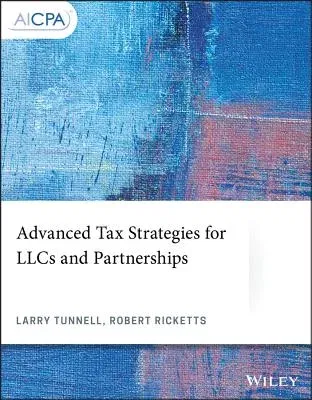What works best for clients? Learn the pros and cons of the LLC, general
partnership, limited partnership, and limited liability partnership by
focusing on planning and potential tax traps. This title offers a review
of distinct advantages of these entities coupled with an examination of
the risk members and partners face if they do not have a solid tax plan
to minimize their exposure. In addition, the authors explore some of the
more intricate rules and regulations of these entities so you can move
your working knowledge of partnership and LLC taxation beyond the
basics.
This book prepares the reader to do the following:
- Analyze a partnership or LLC agreement to determine whether any
special allocations in the agreement will be allowed under Code
Section 704(b)
- Identify the potential economic consequences of special allocations to
a partner or LLC member
- Identify the potential tax consequences when a partner or LLC member
has a negative balance in his or her capital account
- Recognize the relationship between partnership and LLC allocations of
profit and loss and the allocation of the risks and rewards of entity
operations
- Distinguish between the requirements for substantiality and those for
economic effect under the regulations
- Distinguish between "book" allocations required under Section 704(b)
and "tax" allocations required under Section 704(c)
- Recognize the three methods described in the Section 704(c)
regulations to make special allocations with respect to contributed
property
- Determine when a non-contributing partner or LLC member will or will
not be protected by required allocations under Section 704(c)
- Calculate the gain that can result from reallocation of liabilities
when a partner joins a partnership
- Calculate a partner's or member's share of recourse liabilities of a
partnership or LLC
- Distinguish between recourse and nonrecourse liabilities of a
partnership or LLC
- Analyze the impact of a partner or LLC member's guarantee of a
recourse or nonrecourse liability of the entity
- Recognize when to treat a liability as a recognized versus contingent
liability and understand how to account for partnership or LLC
contingent liabilities
- Calculate the basis of each property received by a partner receiving
multiple properties in a liquidating vs. non-liquidating distribution
from a partnership or LLC
- Recognize which properties will receive a step-up or step-down in
basis when multiple properties are received from a partnership or LLC
- Allocate basis increases or decreases among multiple properties for
federal income tax purposes
- Determine when an Internal Revenue code (IRC) Section 754 election
will allow a partnership or LLC to adjust its basis in its assets
- Allocate required basis adjustments among partnership or LLC assets
- Determine the tax consequences associated with the sale of a partner's
or member's interest in a partnership or LLC
- Recognize how using the installment method to account for the sale of
a partnership interest will affect how the partner will report his or
her gain on the sale
- Recognize when the sale of an interest in a partnership will trigger a
technical termination of the partnership
- Determine the tax basis and holding period of assets owned by the
partnership following a technical termination
- Determine the tax consequences associated with subsequent dispositions
of built-in gain or loss assets following a technical termination

